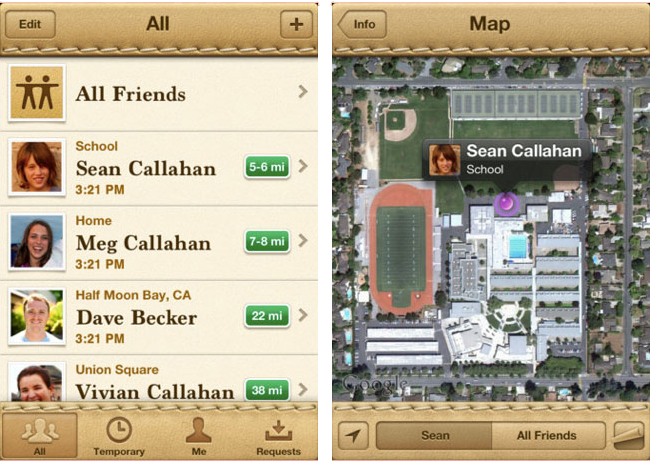Rep. Henry A. Waxman, D-Calif., and G.K. Butterfield, D-N.C., publicized the letters on Thursday, one of which was addressed to Apple Chief Executive Tim Cook for its "Find My Friends" application.
Letters were also addressed to Mark Zuckerberg of Facebook, Dick Costolo of Twitter, Jeff Weiner of LinkedIn, Alexander Ljung of SoundCloud, Dennis Crowley of Foursquare, and Bill Chasen of Turntable.fm.
The companies are being questioned because of recent concerns over developers having access to a user's address book stored on their iOS device. The congressmen seek to better understand what information the applications gather, what they do with it, and what notice is provided to users.
The developers targeted in the inquiry were selected because their software was found in the "Social Networking" subcategory on the "iPhone Essentials" curated list of App Store software.
Another major inclusion on the list is Dave Morin of Path, the company that arguably started the iOS address book controversy. Path and Morin came under fire in February after a developer discovered the application was uploading data behind the scenes without notifying users.
Last week, it was said that Cook himself "grilled" Morin after he learned that the "Path" application was uploading users' address books to its servers without their permission. Morin allegedly took part in a meeting with Cook held at Apple's Cupertino, Calif., headquarters.
Butterfield and Waxman already sent a letter to Apple in February seeking information about iOS address book security. They questioned whether Apple's application developer policies and practices adequately protect consumer privacy.
Apple distanced itself from the controversy by stating that applications that collect or transmit personal information without first obtaining permission are in violation of its developer guidelines. The company has promised to require explicit user approval before App Store software can access contact data in a future iOS software release.
 AppleInsider Staff
AppleInsider Staff




-xl-m.jpg)



 Wesley Hilliard
Wesley Hilliard
 Christine McKee
Christine McKee
 Amber Neely
Amber Neely
 William Gallagher
William Gallagher
 Malcolm Owen
Malcolm Owen

 Mike Wuerthele
Mike Wuerthele








11 Comments
Was Google in that list?
Why is this an issue now when desktop OSes have given any app installed access to the entire user space for as long as I can remember? At least Apple has added a safeguard in their 2nd beta of ML, but more needs to be done.
Wasn't there a South Park episode about this.
And, before all of the chimes here, I agree that there are probably bigger fish to fry.
Was Google in that list?
Why is this an issue now when desktop OSes have given any app installed access to the entire user space for as long as I can remember? At least Apple has added a safeguard in their 2nd beta of ML, but more needs to be done.
I bet it is because it really has nothing to do with address book data collection, rather location tracking. That is the only differentiator between desktop and mobile.
Was Google in that list?
Here is the list:
http://democrats.energycommerce.hous...-and-use-pract
And I don't see Google on it.
I bet it is because it really has nothing to do with address book data collection, rather location tracking. That is the only differentiator between desktop and mobile.
I think Location Data tracking was added in Lion. This is a screenshot of MLb2. As you can see it does let you see which apps you've allowed to access your Contacts. It even has a pop up when you install an app that is trying to get access to your Contacts. But what about an app that is trying to access other parts of your user space? A good start but more needs to be done and it's long overdue.
I'd like to see System Preferences get a makeover that resembles the iPad's Settings. I'd also like for System Preferences to be renamed Settings to follow along the same track of renaming Address Book and iCal. Not just to make it easer for iDevice users going to the Mac but because the System Preferences layout is more limited than iPad's Settings.PS: What South park episode are you thinking of?